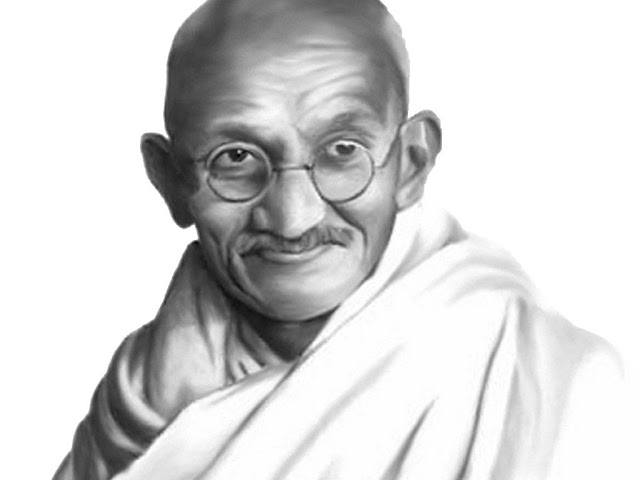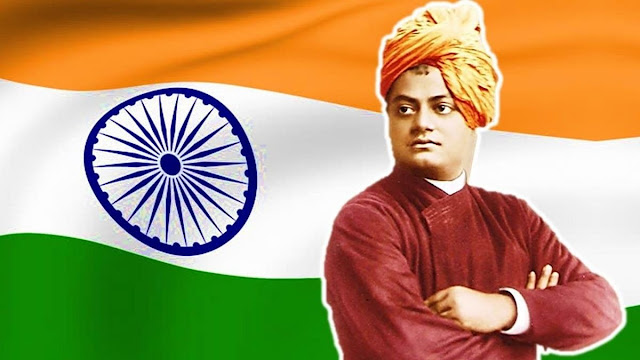Mahatma Gandhi famous quotes to get you inspired
Mahatma Gandhi, also known as Mohandas Karamchand Gandhi, was an influential leader, philosopher, and a prominent figure in the Indian independence movement against British colonial rule. Born on October 2, 1869, in Porbandar, Gujarat, India, he later earned the title "Mahatma," meaning "Great Soul," for his profound impact on humanity through nonviolent civil disobedience and his commitment to social justice.
Gandhi's approach to achieving freedom and justice was rooted in the principles of truth (Satya) and nonviolence (Ahimsa). He believed in the power of passive resistance and the ability to confront oppression and injustice without resorting to violence. His teachings and actions inspired countless individuals worldwide, leading to significant changes in various movements for civil rights, freedom, and equality.
🟦 Top 20 Inspirational Quotes by Mahatma Gandhi:
🔹"You must be the change you wish to see in the world." Meaning: Gandhi emphasizes that true transformation starts from within. To see positive changes in the world, individuals must embody the values they desire to witness in others.
🔹"The best way to find yourself is to lose yourself in the service of others." Meaning: Through selfless service to others, we can discover our true purpose and identity.
🔹"An eye for an eye only ends up making the whole world blind." Meaning: Retaliation and revenge only lead to a cycle of violence and destruction. Forgiveness and compassion are the paths to lasting peace.
🔹"In a gentle way, you can shake the world." Meaning: Nonviolent actions and words, even in the face of opposition, have the power to create lasting change.
🔹"The weak can never forgive. Forgiveness is the attribute of the strong." Meaning: It takes strength and courage to forgive others and let go of resentment.
🔹"The future depends on what you do today." Meaning: Our actions in the present shape the outcomes of the future.
🔹"The best way to find yourself is to lose yourself in the service of others." Meaning: By focusing on the welfare of others, we can transcend our egos and connect with our true selves.
🔹"First, they ignore you, then they laugh at you, then they fight you, then you win." Meaning: Progress often faces resistance, but persistence in the pursuit of truth and justice will ultimately lead to victory.
🔹"An ounce of patience is worth more than a tonne of preaching." Meaning: Demonstrating patience and understanding is more impactful than simply giving advice.
🔹"Happiness is when what you think, what you say, and what you do are in harmony." Meaning: True happiness arises when our thoughts, words, and actions are aligned and consistent.
🔹"Where there is love, there is life." Meaning: Love is the essence of existence and brings vitality to our lives.
🔹"You may never know what results come of your actions, but if you do nothing, there will be no results." Meaning: Taking action, even in uncertainty, is better than doing nothing and achieving nothing.
🔹"The greatness of humanity is not in being human but in being humane." Meaning: Our humanity shines through acts of compassion and kindness towards all living beings.
🔹"Live as if you were to die tomorrow. Learn as if you were to live forever." Meaning: Embrace each day as if it were your last and continuously seek knowledge and growth.
🔹"Earth provides enough to satisfy every man's needs, but not every man's greed." Meaning: The earth's resources are abundant, but unchecked greed can lead to imbalance and suffering.
🔹"The weak can never forgive. Forgiveness is the attribute of the strong." Meaning: It takes strength and courage to forgive others and let go of resentment.
🔹"Strength does not come from physical capacity. It comes from an indomitable will." Meaning: True strength lies in the determination and resilience of one's spirit.
🔹"The best way to find yourself is to lose yourself in the service of others." Meaning: By focusing on the welfare of others, we can transcend our egos and connect with our true selves.
🔹"In a gentle way, you can shake the world." Meaning: Nonviolent actions and words, even in the face of opposition, have the power to create lasting change.
🔹"The weak can never forgive. Forgiveness is the attribute of the strong." Meaning: It takes strength and courage to forgive others and let go of resentment.
* These powerful quotes by Mahatma Gandhi serve as timeless reminders of the significance of truth, nonviolence, and compassion in our lives. By embodying these principles, we can find the strength to overcome challenges and inspire positive change in the world around us.
🟩 Frequently Asked Questions (FAQ) about Mahatma Gandhi:
Q1. Who was Mahatma Gandhi, and what was his role in India's independence movement?
Answer : Mahatma Gandhi, born Mohandas Karamchand Gandhi, was a prominent leader in India's struggle for independence from British colonial rule. He advocated for nonviolent civil disobedience and led various movements, including the Salt March and Quit India Movement. His tireless efforts and principles of truth and nonviolence played a pivotal role in India's eventual independence on August 15, 1947.
Q2. What is the significance of Mahatma Gandhi's concept of "Satyagraha"?
Answer : Satyagraha, a term coined by Gandhi, translates to "truth-force" or "soul-force." It refers to his philosophy of nonviolent resistance against injustice and oppression. Through Satyagraha, Gandhi encouraged people to protest peacefully and resist unjust laws without resorting to violence. This approach inspired numerous civil rights and freedom movements across the world.
Q3. How did Mahatma Gandhi influence the Civil Rights Movement in the United States?
Answer : Gandhi's principles of nonviolence and civil disobedience deeply influenced leaders of the American Civil Rights Movement, such as Martin Luther King Jr. King, inspired by Gandhi's strategies, adopted nonviolent protests and demonstrations to fight racial segregation and discrimination in the United States. Gandhi's legacy thus extended beyond India's borders and played a significant role in promoting human rights worldwide.
Q4. What was the significance of the Dandi Salt March, and how did it impact India's freedom movement?
Answer : The Dandi Salt March, which began on March 12, 1930, was a 240-mile protest led by Gandhi against the British monopoly on salt production and the unjust salt tax. As thousands joined Gandhi on his journey to the Arabian Sea to make their salt, it showcased the power of nonviolent resistance and drew international attention to India's struggle for independence. The Salt March galvanized public support and furthered the momentum towards freedom.
Q5. How did Mahatma Gandhi's principles influence post-independence India?
Answer : Even after India gained independence, Gandhi's ideals continued to be a guiding force for the nation. His emphasis on communal harmony, rural development, and self-sufficiency through cottage industries left a lasting impact on Indian society. His teachings promoted unity and secularism in a diverse country like India, helping shape the foundation of a democratic and inclusive nation. Gandhi's legacy remains an integral part of India's cultural and political fabric.
***These frequently asked questions provide insights into the life, philosophy, and enduring influence of Mahatma Gandhi. His dedication to truth, nonviolence, and social justice continues to inspire individuals and movements around the world, emphasizing the power of peaceful resistance and compassion in bringing about positive change.




Comments
Post a Comment